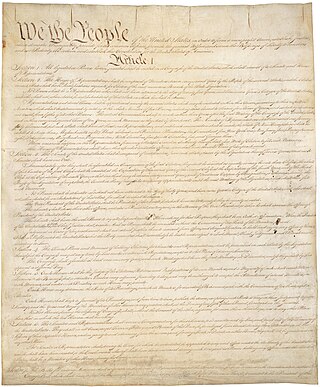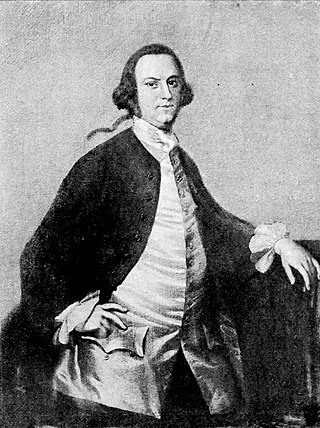| C110 | |
|---|---|
| ILO Convention | |
| Date of adoption | June 24, 1958 |
| Date in force | January 22, 1960 |
| Classification | Plantation Workers |
| Subject | Categories of Workers |
| Previous | Wages, Hours of Work and Manning (Sea) Convention (Revised), 1958 |
| Next | Discrimination (Employment and Occupation) Convention, 1958 |
Plantations Convention, 1958 is an International Labour Organization Convention.
It was established in 1958, with the preamble stating:
Having considered the question of conditions of employment of plantation workers,...
As of 2022, the convention has been ratified by 12 states. Two of the ratifying states—Brazil and Liberia—have subsequently denounced the treaty.

The European Convention on Human Rights is an international convention to protect human rights and political freedoms in Europe. Drafted in 1950 by the then newly formed Council of Europe, the convention entered into force on 3 September 1953. All Council of Europe member states are party to the convention and new members are expected to ratify the convention at the earliest opportunity.

The Constitution of the United States is the supreme law of the United States of America. It superseded the Articles of Confederation, the nation's first constitution, in 1789. Originally comprising seven articles, it delineates the national frame and constraints of government. The Constitution's first three articles embody the doctrine of the separation of powers, whereby the federal government is divided into three branches: the legislative, consisting of the bicameral Congress ; the executive, consisting of the president and subordinate officers ; and the judicial, consisting of the Supreme Court and other federal courts. Article IV, Article V, and Article VI embody concepts of federalism, describing the rights and responsibilities of state governments, the states in relationship to the federal government, and the shared process of constitutional amendment. Article VII establishes the procedure subsequently used by the 13 states to ratify it. The Constitution of the United States is the oldest and longest-standing written and codified national constitution in force in the world today.

Article Five of the United States Constitution describes the process for altering the Constitution. Under Article Five, the process to alter the Constitution consists of proposing an amendment or amendments, and subsequent ratification.

The United Nations Convention on the Law of the Sea (UNCLOS), also called the Law of the Sea Convention or the Law of the Sea Treaty, is an international agreement that establishes a legal framework for all marine and maritime activities. As of June 2016, 167 countries and the European Union are parties.

The United States Constitution has served as the supreme law of the United States since taking effect in 1789. The document was written at the 1787 Philadelphia Convention and was ratified through a series of state conventions held in 1787 and 1788. Since 1789, the Constitution has been amended twenty-seven times; particularly important amendments include the ten amendments of the United States Bill of Rights and the three Reconstruction Amendments.

Daniel Carroll was an American politician and plantation owner from Maryland and one of the Founding Fathers of the United States. He supported the American Revolution, served in the Confederation Congress, was a delegate to the Philadelphia Convention of 1787 which penned the Constitution of the United States, and was a U.S. Representative in the First Congress. Carroll was one of five men to sign both the Articles of Confederation and the Constitution. He was one of the few Roman Catholics among the Founders.
The Convention on the Territorial Sea and Contiguous Zone of 1958 is an international treaty which entered into force on 10 September 1964, one of four agreed upon at the first United Nations Conference on the Law of the Sea. 52 states are parties to the convention, whether through ratification, succession, or accession.

A convention, in the sense of a meeting, is a gathering of individuals who meet at an arranged place and time in order to discuss or engage in some common interest. The most common conventions are based upon industry, profession, and fandom. Trade conventions typically focus on a particular industry or industry segment, and feature keynote speakers, vendor displays, and other information and activities of interest to the event organizers and attendees. Professional conventions focus on issues of concern along with advancements related to the profession. Such conventions are generally organized by societies or communities dedicated to promotion of the topic of interest. Fan conventions usually feature displays, shows, and sales based on pop culture and guest celebrities. Science fiction conventions traditionally partake of the nature of both professional conventions and fan conventions, with the balance varying from one to another. Conventions also exist for various hobbies, such as gaming or model railroads.
The Convention concerning Wages, Hours of Work on Board Ship and Manning is a convention of the International Labour Organization originally drafted in 1946 and revised conventions in 1949 and 1958, none of which entered into force.
Seafarers' Identity Documents Convention, 1958 is an International Labour Organization Convention.
Seafarers' Identity Documents Convention (Revised), 2003 (C185) is an International Labour Organization Convention.
Working Environment Convention, 1977 is an International Labour Organization Convention.
Occupational Safety and Health Convention, 1981 is an International Labour Organization Convention, number 155.
Seafarers' Hours of Work and the Manning of Ships Convention, 1996 is an International Labour Organization Convention.
Private Employment Agencies Convention, 1997 is an International Labour Organization Convention.
Robert Whitehill was a member of the U.S. House of Representatives from Pennsylvania.

John Tyler Sr. was an American lawyer, planter, politician and judge who served in the Virginia House of Delegates and became 15th Governor of Virginia and later United States district judge of the United States District Court for the District of Virginia. He was the father of U.S. President John Tyler.
David Stuart was a Virginia physician, politician, and correspondent of George Washington. When Washington became President of the United States, he made Stuart one of three commissioners appointed to design a new United States capital city.

The Convention Relating to the Distribution of Programme-Carrying Signals Transmitted by Satellite was opened for signature on 21 May 1974 in Brussels and entered into force on 25 August 1979. It is overseen by the United Nations Committee on the Peaceful Uses of Outer Space.